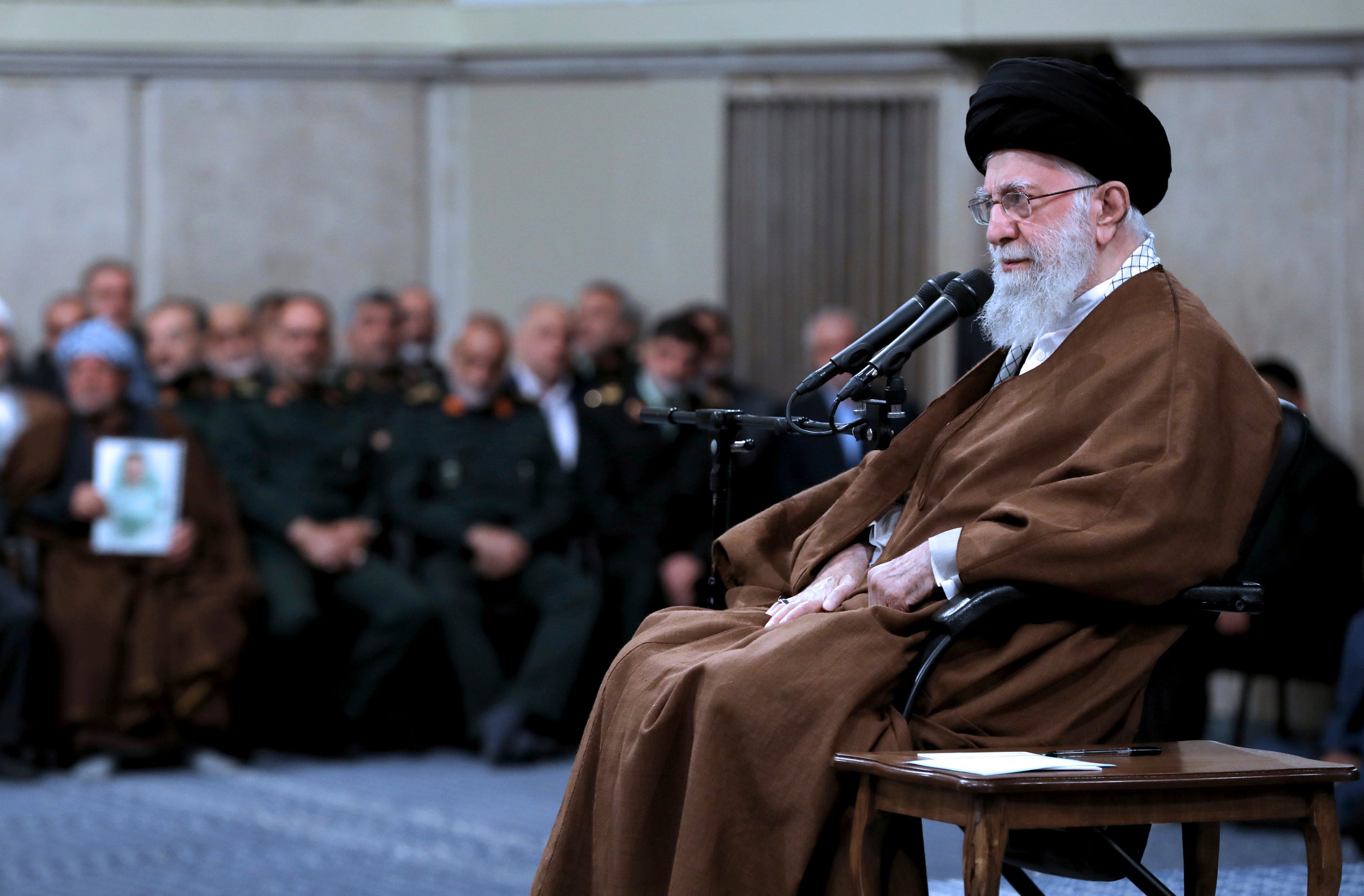Netanyahu praises Israel’s hard hitting attack on Iran as Tehran plays down impact
Iran’s religious ruler Ayatollah Ali Khamenei claims Israel’s aerial attack should not be exaggerated amid fears of wider war – but his officials branded the airstrikes a violation of international law

Israeli prime minister Benjamin Netanyahu has praised the country’s retaliatory airstrikes on Iran as Tehran’s religious ruler sought to play down the impact of the attack amid fears of escalation.
“We hit hard Iran’s defence capabilities and its ability to produce missiles that are aimed at us,” Mr Netanyahu said in a speech, calling the attack “precise and powerful” and saying it met all its objectives.
With warfare raging in Gaza and Lebanon, direct confrontation between Israel and Iran risks spiralling into a regional conflagration. But a day after the Israeli airstrikes, there was no sign they would spark another round of escalation.
Iran has not signalled how it will respond to Saturday’s long-anticipated strikes, which involved scores of fighter jets bombing targets near the capital Tehran and in the western provinces of Ilam and Khuzestan.
Supreme leader Ayatollah Ali Khamenei said Israel’s attack, which killed four soldiers and damaged several military bases, “should neither be downplayed nor exaggerated”.
US president Joe Biden has called for a halt to escalation after the Israeli strikes, while the United Nations Security Council is expected to meet on Monday to discuss the attack.

Iran’s foreign minister Abbas Araqchi called on the Security Council to meet over the attack, saying that it constituted “a grave threat to international peace and security and further destabilised an already fragile region”.
Israel’s UN Ambassador Danny Danon rejected Iran’s complaint, saying that Iran was “trying to act against us in the diplomatic arena with the ridiculous claim that Israel has violated international law”.
“As we have stated time and time again, we have the right and duty to defend ourselves and will use all the means at our disposal to protect the citizens of Israel,” Mr Danon said.
The full extent of damage caused by Israel’s attack, a response to an unprecedented Iranian attack three weeks ago during which Tehran launched around 180 ballistic missiles, forcing millions of civilians into bomb shelters, remains unclear. But satellite images showed damage at a secretive military base southeast of the Iranian capital that experts in the past have linked to Tehran’s onetime nuclear weapons programme and at another base tied to its ballistic missile programme.
In a separate development, a truck rammed into a bus stop near Tel Aviv, killing one person and wounding more than 30. Israeli police said the attacker was an Arab citizen of Israel. The ramming occurred outside a military base and near the headquarters of Israel’s Mossad spy agency.
While concerns remain about a possible further escalation of fighting, Israeli defence minister Yoav Gallant, a close ally of Mr Netanyahu, claimed Iran’s ability to use its allies Hamas in Gaza and Hezbollah in Lebanon to attack Israel had been thwarted.
He said in a speech that the two groups “are no longer an effective tool” of Tehran.
But the comments came as Israeli strikes on northern Gaza killed at least 22 people, according to local health authorities, most of them women and children, as part of the latest weeks-long offensive in the area.

The Gaza Health Ministry said 11 women and two children were among those killed in the strikes late on Saturday in the northern town of Beit Lahiya. It said another 15 people were injured.
Israel launched its war in Gaza on 7 October after Hamas militants broke through the border and killed around 1,200 people, taking a further 251 hostage in the enclave. A little less than half of those taken remain in captivity.
Since then, more than 42,000 Palestinians have been killed, according to the local authorities, while more than 90 per cent of the population has been displaced, often multiple times.
Aid groups have warned of a catastrophic situation in northern Gaza, which was the first target of Israel’s ground offensive and suffered the heaviest destruction of the war. Israel has severely limited the entry of basic humanitarian aid in recent weeks, and the three remaining hospitals in the north - one raided over the weekend - say they have been overwhelmed by waves of injured.
The UN secretary-general Antonio Guterres, in a statement by his spokesperson, accused Israeli authorities of denying most aid deliveries of food and medicine amid “harrowing levels of death”.
In southern Lebanon, where Hezbollah is based, an Israeli strike on Sidon, a city in coastal south Lebanon, killed at least eight people and wounded 25 on Sunday, the country’s health ministry said.
Elsewhere in the south, a strike on Zawtar al-Sharkiya killed three people and a Saturday bombing of Marjayoun killed five, it said.
Israel said four of its soldiers were killed in south Lebanon fighting.
The Israeli military urged residents of 14 villages to evacuate immediately and move north of the Awali river.
Join our commenting forum
Join thought-provoking conversations, follow other Independent readers and see their replies
Comments
Bookmark popover
Removed from bookmarks